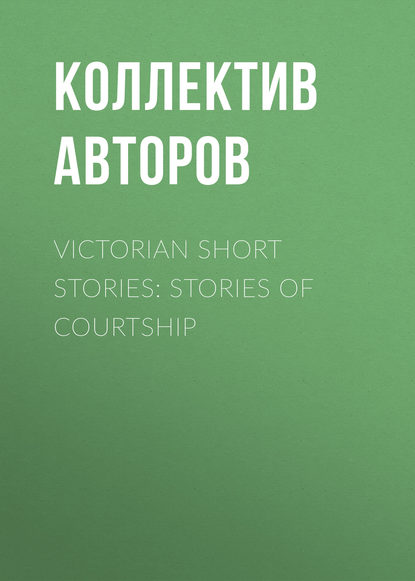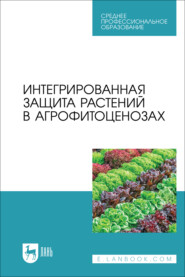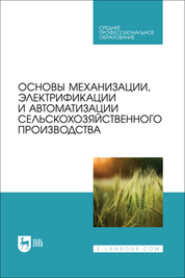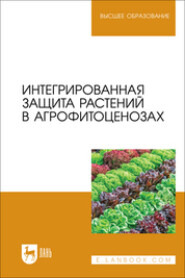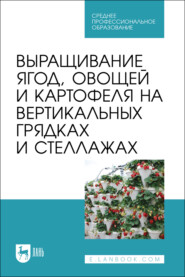По всем вопросам обращайтесь на: info@litportal.ru
(©) 2003-2024.
✖
Victorian Short Stories: Stories of Courtship
Настройки чтения
Размер шрифта
Высота строк
Поля
The next time that he saw her was in church on Sunday. He watched her shyly, with a hesitating, reverential discretion: her beauty seemed to him wonderful, distant, enigmatic. In the afternoon, young Mrs. Forsyth, from Longscale, dropped in for a cup of tea with his mother, and the two set off gossiping of Rosa Blencarn, speaking of her freely, in tones of acrimonious contempt. For a long while he sat silent, puffing at his pipe; but at last, when his mother concluded with, 'She looks t' me fair stuck-oop, full o' toonish airs an' graces,' despite himself, he burst out: 'Ye're jest wastin' yer breath wi' that cackle. I reckon Miss Blencarn's o' a different clay to us folks.' Young Mrs. Forsyth tittered immoderately, and the next week it was rumoured about the valley that 'Tony Garstin was gone luny over t' parson's niece.'
But of all this he knew nothing—keeping to himself, as was his wont, and being, besides, very busy with the hay harvest—until one day, at dinner-time, Henry Sisson asked if he'd started his courting; Jacob Sowerby cried that Tony'd been too slow in getting to work, for that the girl had been seen spooning in Crosby Shaws with Curbison the auctioneer, and the others (there were half-a-dozen of them lounging round the hay-waggon) burst into a boisterous guffaw. Anthony flushed dully, looking hesitatingly from the one to the other; then slowly put down his beer-can, and of a sudden, seizing Jacob by the neck, swung him heavily on the grass. He fell against the waggon-wheel, and when he rose the blood was streaming from an ugly cut in his forehead. And henceforward Tony Garstin's courtship was the common jest of all the parish.
As yet, however, he had scarcely spoken to her, though twice he had passed her in the lane that led up to the vicarage. She had given him a frank, friendly smile; but he had not found the resolution to do more than lift his hat. He and Henry Sisson stacked the hay in the yard behind the house; there was no further mention made of Rosa Blencarn; but all day long Anthony, as he knelt thatching the rick, brooded over the strange sweetness of her face, and on the fell-top, while he tramped after the ewes over the dry, crackling heather, and as he jogged along the narrow, rickety road, driving his cartload of lambs into the auction mart.
Thus, as the weeks slipped by, he was content with blunt, wistful ruminations upon her indistinct image. Jacob Sowerby's accusation, and several kindred innuendoes let fall by his mother, left him coolly incredulous; the girl still seemed to him altogether distant; but from the first sight of her face he had evolved a stolid, unfaltering conception of her difference from the ruck of her sex.
But one evening, as he passed the vicarage on his way down from the fells, she called to him, and with a childish, confiding familiarity asked for advice concerning the feeding of the poultry. In his eagerness to answer her as best he could, he forgot his customary embarrassment, and grew, for the moment, almost voluble, and quite at his ease in her presence. Directly her flow of questions ceased, however, the returning perception of her rosy, hesitating smile, and of her large, deep eyes looking straight into his face, perturbed him strangely, and, reddening, he remembered the quarrel in the hay-field and the tale of Crosby Shaws.
After this, the poultry became a link between them—a link which he regarded in all seriousness, blindly unconscious that there was aught else to bring them together, only feeling himself in awe of her, because of her schooling, her townish manners, her ladylike mode of dress. And soon, he came to take a sturdy, secret pride in her friendly familiarity towards him. Several times a week he would meet her in the lane, and they would loiter a moment together; she would admire his dogs, though he assured her earnestly that they were but sorry curs; and once, laughing at his staidness, she nick-named him 'Mr. Churchwarden'.
That the girl was not liked in the valley he suspected, curtly attributing her unpopularity to the women's senseless jealousy. Of gossip concerning her he heard no further hint; but instinctively, and partly from that rugged, natural reserve of his, shrank from mentioning her name, even incidentally, to his mother.
Now, on Sunday evenings, he often strolled up to the vicarage, each time quitting his mother with the same awkward affectation of casualness; and, on his return, becoming vaguely conscious of how she refrained from any comment on his absence, and appeared oddly oblivious of the existence of parson Blencarn's niece.
She had always been a sour-tongued woman; but, as the days shortened with the approach of the long winter months, she seemed to him to grow more fretful than ever; at times it was almost as if she bore him some smouldering, sullen resentment. He was of stubborn fibre, however, toughened by long habit of a bleak, unruly climate; he revolved the matter in his mind deliberately, and when, at last, after much plodding thought, it dawned upon him that she resented his acquaintance with Rosa Blencarn, he accepted the solution with an unflinching phlegm, and merely shifted his attitude towards the girl, calculating each day the likelihood of his meeting her, and making, in her presence, persistent efforts to break down, once for all, the barrier of his own timidity. He was a man not to be clumsily driven, still less, so he prided himself, a man to be craftily led.
It was close upon Christmas time before the crisis came. His mother was just home from Penrith market. The spring-cart stood in the yard, the old grey horse was steaming heavily in the still, frosty air.
'I reckon ye've come fast. T' ould horse is over hot,' he remarked bluntly, as he went to the animal's head.
She clambered down hastily, and, coming to his side, began breathlessly:
'Ye ought t' hev coom t' market, Tony. There's bin pretty goin's on in Pe'rith today. I was helpin' Anna Forsyth t' choose six yards o' sheetin' in Dockroy, when we sees Rosa Blencarn coom oot o' t' 'Bell and Bullock' in company we' Curbison and young Joe Smethwick. Smethwick was fair reelin' drunk, and Curbison and t' girl were a-houldin' on to him, to keep him fra fallin'; and then, after a bit, he puts his arm round the girl t' stiddy hisself, and that fashion they goes off, right oop t' public street—'
He continued to unload the packages, and to carry them mechanically one by one into the house. Each time, when he reappeared, she was standing by the steaming horse, busy with her tale.
'An' on t' road hame we passed t' three on' em in Curbison's trap, with Smethwick leein' in t' bottom, singin' maudlin' songs. They were passin' Dunscale village, an't' folks coom runnin' oot o' houses t' see 'em go past—'
He led the cart away towards the stable, leaving her to cry the remainder after him across the yard.
Half-an-hour later he came in for his dinner. During the meal not a word passed between them, and directly he had finished he strode out of the house. About nine o'clock he returned, lit his pipe, and sat down to smoke it over the kitchen fire.
'Where've ye bin, Tony?' she asked.
'Oop t' vicarage, courtin', he retorted defiantly, with his pipe in his mouth.
This was ten months ago; ever since he had been doggedly waiting. That evening he had set his mind on the girl, he intended to have her; and while his mother gibed, as she did now upon every opportunity, his patience remained grimly unflagging. She would remind him that the farm belonged to her, that he would have to wait till her death before he could bring the hussy to Hootsey: he would retort that as soon as the girl would have him, he intended taking a small holding over at Scarsdale. Then she would give way, and for a while piteously upbraid him with her old age, and with the memory of all the years she and he had spent together, and he would comfort her with a display of brusque, evasive remorse.
But, none the less, on the morrow, his thoughts would return to dwell on the haunting vision of the girl's face, while his own rude, credulous chivalry, kindled by the recollection of her beauty, stifled his misgivings concerning her conduct.
Meanwhile she dallied with him, and amused herself with the younger men. Her old uncle fell ill in the spring, and could scarcely leave the house. She declared that she found life in the valley intolerably dull, that she hated the quiet of the place, that she longed for Leeds, and the exciting bustle of the streets; and in the evenings she wrote long letters to the girl-friends she had left behind there, describing with petulant vivacity her tribe of rustic admirers. At the harvest-time she went back on a fortnight's visit to friends; the evening before her departure she promised Anthony to give him her answer on her return. But, instead, she avoided him, pretended to have promised in jest, and took up with Luke Stock, a cattle-dealer from Wigton.
V
It was three weeks since he had fetched his flock down from the fell.
After dinner he and his mother sat together in the parlour: they had done so every Sunday afternoon, year in and year out, as far back as he could remember.
A row of mahogany chairs, with shiny, horse-hair seats, were ranged round the room. A great collection of agricultural prize-tickets were pinned over the wall; and, on a heavy, highly-polished sideboard stood several silver cups. A heap of gilt-edged shavings filled the unused grate: there were gaudily-tinted roses along the mantelpiece, and, on a small table by the window, beneath a glass-case, a gilt basket filled with imitation flowers. Every object was disposed with a scrupulous precision: the carpet and the red-patterned cloth on the centre table were much faded. The room was spotlessly clean, and wore, in the chilly winter sunlight, a rigid, comfortless air.
Neither spoke, or appeared conscious of the other's presence. Old Mrs. Garstin, wrapped in a woollen shawl, sat knitting: Anthony dozed fitfully on a stiff-backed chair.
Of a sudden, in the distance, a bell started tolling. Anthony rubbed his eyes drowsily, and taking from the table his Sunday hat, strolled out across the dusky fields. Presently, reaching a rude wooden seat, built beside the bridle-path, he sat down and relit his pipe. The air was very still; below him a white filmy mist hung across the valley: the fell-sides, vaguely grouped, resembled hulking masses of sombre shadow; and, as he looked back, three squares of glimmering gold revealed the lighted windows of the square-towered church.
He sat smoking; pondering, with placid and reverential contemplation, on the Mighty Maker of the world—a world majestically and inevitably ordered; a world where, he argued, each object—each fissure in the fells, the winding course of each tumbling stream—possesses its mysterious purport, its inevitable signification….
At the end of the field two rams were fighting; retreating, then running together, and, leaping from the ground, butting head to head and horn to horn. Anthony watched them absently, pursuing his rude meditations.
… And the succession of bad seasons, the slow ruination of the farmers throughout the country, were but punishment meted out for the accumulated wickedness of the world. In the olden time God rained plagues upon the land: nowadays, in His wrath, He spoiled the produce of the earth, which, with His own hands, He had fashioned and bestowed upon men.
He rose and continued his walk along the bridle-path. A multitude of rabbits scuttled up the hill at his approach; and a great cloud of plovers, rising from the rushes, circled overhead, filling the air with a profusion of their querulous cries. All at once he heard a rattling of stones, and perceived a number of small pieces of shingle bounding in front of him down the grassy slope.
A woman's figure was moving among the rocks above him. The next moment, by the trimming of crimson velvet on her hat, he had recognized her. He mounted the slope with springing strides, wondering the while how it was she came to be there, that she was not in church playing the organ at afternoon service.
Before she was aware of his approach, he was beside her.
'I thought ye'd be in church—' he began.
She started: then, gradually regaining her composure, answered, weakly smiling:
'Mr. Jenkinson, the new schoolmaster, wanted to try the organ.'
He came towards her impulsively: she saw the odd flickers in his eyes as she stepped back in dismay.
'Nay, but I will na harm ye,' he said. 'Only I reckon what 'tis a special turn o' Providence, meetin' wi' ye oop here. I reckon what ye'll hev t' give me a square answer noo. Ye canna dilly-dally everlastingly.'
He spoke almost brutally; and she stood, white and gasping, staring at him with large, frightened eyes. The sheep-walk was but a tiny threadlike track: the slope of the shingle on either side was very steep: below them lay the valley; distant, lifeless, all blurred by the evening dusk. She looked about her helplessly for a means of escape.
'Miss Rosa,' he continued, in a husky voice, 'can ye na coom t' think on me? Think ye, I've bin waitin' nigh upon two year for ye. I've watched ye tak oop, first wi' this young fellar, and then wi' that, till soomtimes my heart's fit t' burst. Many a day, oop on t' fell-top, t' thought o' ye's nigh driven me daft, and I've left my shepherdin' jest t' set on a cairn in t' mist, picturin' an' broodin' on yer face. Many an evenin' I've started oop t' vicarage, wi' t' resolution t' speak right oot t' ye; but when it coomed t' point, a sort o' timidity seemed t' hould me back, I was that feared t' displease ye. I knaw I'm na scholar, an' mabbe ye think I'm rough-mannered. I knaw I've spoken sharply to ye once or twice lately. But it's jest because I'm that mad wi' love for ye: I jest canna help myself soomtimes—'
He waited, peering into her face. She could see the beads of sweat above his bristling eyebrows: the damp had settled on his sandy beard: his horny fingers were twitching at the buttons of his black Sunday coat.
She struggled to summon a smile; but her under-lip quivered, and her large dark eyes filled slowly with tears.
And he went on:
'Ye've coom t' mean jest everything to me. Ef ye will na hev me, I care for nought else. I canna speak t' ye in phrases: I'm jest a plain, unscholarly man: I canna wheedle ye, wi' cunnin' after t' fashion o' toon folks. But I can love ye wi' all my might, an' watch over ye, and work for ye better than any one o' em—'
She was crying to herself, silently, while he spoke. He noticed nothing, however: the twilight hid her face from him.
'There's nought against me,' he persisted. 'I'm as good a man as any one on 'em. Ay, as good a man as any one on 'em,' he repeated defiantly, raising his voice.
'It's impossible, Mr. Garstin, it's impossible. Ye've been very kind to me—' she added, in a choking voice.
'Wa dang it, I didna mean t' mak ye cry, lass,' he exclaimed, with a softening of his tone. 'There's nought for ye t' cry ower.'
She sank on to the stones, passionately sobbing in hysterical and defenceless despair. Anthony stood a moment, gazing at her in clumsy perplexity: then, coming close to her, put his hand on her shoulder, and said gently:





